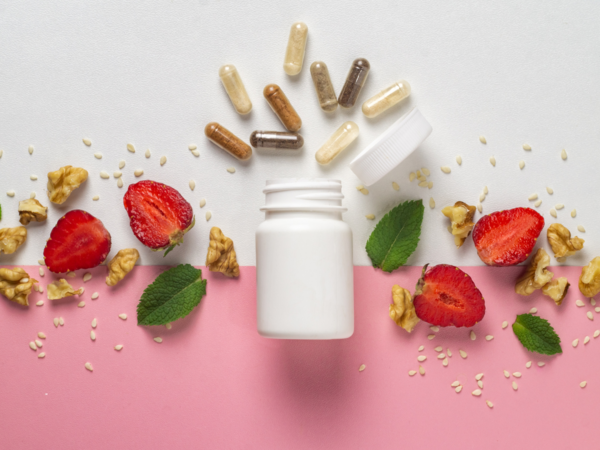Vitamin D
One of the standout nutrients in milk is Vitamin D.Known as the “sunshine vitamin,” Vitamin D is crucial for bone health. It helps the body absorb calcium, ensuring that our bones remain strong and healthy. According to a study published in the American Journal of Clinical Nutrition, sufficient Vitamin D intake is associated with a reduced risk of osteoporosis and fractures in older adults.
Calcium
Image: Canva
Calcium is perhaps the most well-known nutrient in milk. A 250ml serving of milk contains about 300mg of calcium, which is approximately 30% of the recommended daily intake for adults. Calcium is essential for developing and maintaining strong bones and teeth. The National Institutes of Health (NIH) highlights that calcium also plays a role in muscle function, nerve signalling, and heart health.
Vitamin B12
Milk is also a great source of Vitamin B12, providing about 1.2 micrograms per 250ml serving, which is 50% of the recommended daily intake. Vitamin B12 is vital for maintaining healthy nerve cells and producing DNA. It also plays a significant role in preventing megaloblastic anaemia, which can make people tired and weak. Research from Harvard Health indicates that adequate Vitamin B12 levels are crucial for energy production and brain health.
Riboflavin (Vitamin B2)
Riboflavin, or Vitamin B2, is another important nutrient in milk, offering about 0.4 milligrams per 250ml serving. This amounts to around 30% of the daily requirement. Riboflavin helps convert food into energy, making it essential for metabolic processes. It also supports skin health and red blood cell production. The Journal of Nutrition suggests that riboflavin is vital for growth and overall good health.
Phosphorus
Phosphorus works with calcium to build strong bones and teeth. A 250ml glass of milk contains approximately 250mg of phosphorus, which is 20% of the daily recommended intake. Beyond bone health, phosphorus is important for producing ATP, the energy currency of our cells, and for maintaining acid-base balance in the body.

Image: Canva
Potassium
Potassium is another significant mineral in milk, with a 250ml serving providing about 380mg, or 8% of the daily value. Potassium is crucial for maintaining healthy blood pressure levels, reducing the risk of stroke, and supporting muscle function. The American Heart Association emphasizes the importance of potassium in counteracting the adverse effects of sodium and maintaining cardiovascular health.
Vitamin A
A 250ml glass of milk provides around 150 micrograms of Vitamin A, which is about 20% of the daily recommended intake. Vitamin A is essential for good vision, a healthy immune system, and proper functioning of the heart, lungs, and kidneys. The World Health Organization (WHO) notes that Vitamin A is vital for maintaining healthy skin and mucous membranes, which act as barriers against infections.
Magnesium
Milk also contains about 24mg of magnesium per 250ml serving. Magnesium is involved in over 300 biochemical reactions in the body, including protein synthesis, muscle and nerve function, blood glucose control, and blood pressure regulation. Research from the National Institutes of Health points to the importance of magnesium in energy production and bone health.


